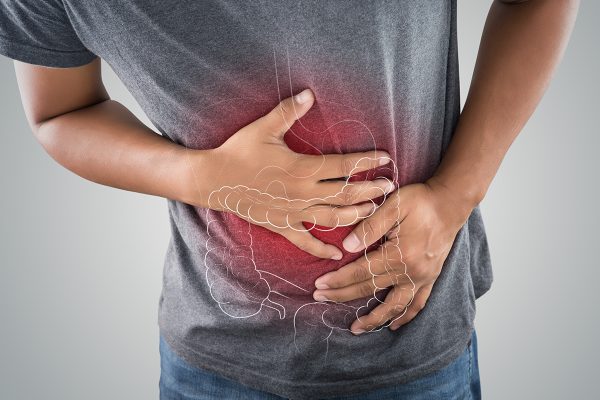Crohn’s disease can be quite debilitating. While medication is the preferred treatment method, some people living with the condition need surgery to improve their quality of life or to save them from fatal medical complications related to the disease. Our experienced providers at Piedmont Colorectal Associates understand how to treat Crohn’s disease and its complications, and we will find the best approach for you.
Your surgical options for improving Crohn’s disease will vary because this type of inflammatory bowel disease (IBD) can impact any part of the intestinal tract that stretches from your mouth to your anus. Your symptoms and surgery depend on which segment of the intestine is affected, but typically abdominal pain and diarrhea are the most common complaints.
A gastroenterologist will evaluate and manage your condition. If you experience complications in your colon, rectum or anus, they may refer you to Piedmont Colorectal Associates to meet with one of our colorectal surgeons. Surgeries for Crohn’s disease are often minimally invasive and performed laparoscopically or with robotic technology so you can recover quickly with less discomfort.
Reasons for Crohn’s Disease Surgery
The goal of Crohn’s disease procedures is to save as much of the bowel as possible while alleviating complications and improving your quality of life. Some of the issues that lead patients to consider surgery include:
- Excessive intestinal bleeding: Bleeding in the intestine is a rare Crohn’s disease complication that may not be controlled with other treatment methods and require surgery.
- Bowel perforation: The chronic inflammation caused by Crohn’s disease can weaken the wall of your intestines and create a hole. That perforation may cause the contents of your intestines to spill out into the abdomen and lead to infection.
- Blocked or obstructed intestines: Scar tissue and thickened tissue can develop due to chronic inflammation, which creates a “stricture” or narrow section of the intestines that blocks the intestinal tract causing pain, constipation, nausea, vomiting and more severe symptoms.
- Abscess (infection): Pus may collect in the pelvis, anal area or abdomen from Crohn’s disease leading to severe stomach pain and a red, swollen lump near the anus. An abscess must be treated with antibiotics and surgically drained.
- Fistula: Ulcers or sores may grow inside your intestinal wall or other organs caused by the inflammation. These sores may push through the bowel wall and form a tunnel (fistula) between two parts of the intestine or between the intestine and another organ. Fistulas may even break the skin’s surface.
- Toxic megacolon: This is a life-threatening problem caused by severe colon inflammation that leads to excruciating pain, fever, swollen abdomen, rapid heart rate, dehydration and constipation. Immediate surgical treatment is necessary.
Elective Crohn’s Surgery
People living with Crohn’s disease have a higher risk for colorectal cancer and may wish to have elective surgery to lower the likelihood. The longer you have a form of irritable bowel disease, the more likely you are to develop colon or rectal cancer, which often begins as a polyp along the inside of the intestines. Dysplasia may also occur — a flat, abnormal tissue along the intestinal wall that does not appear during regular colonoscopies and can become cancerous.
Some men and women with Crohn’s disease may wish to have elective Crohn’s surgery to improve their lives due to severe side effects from medications or treatments that no longer work to improve symptoms.
Please schedule an appointment with one of our providers to discuss your surgical options for Crohn’s disease. Call or email our Atlanta and Stockbridge offices today.


